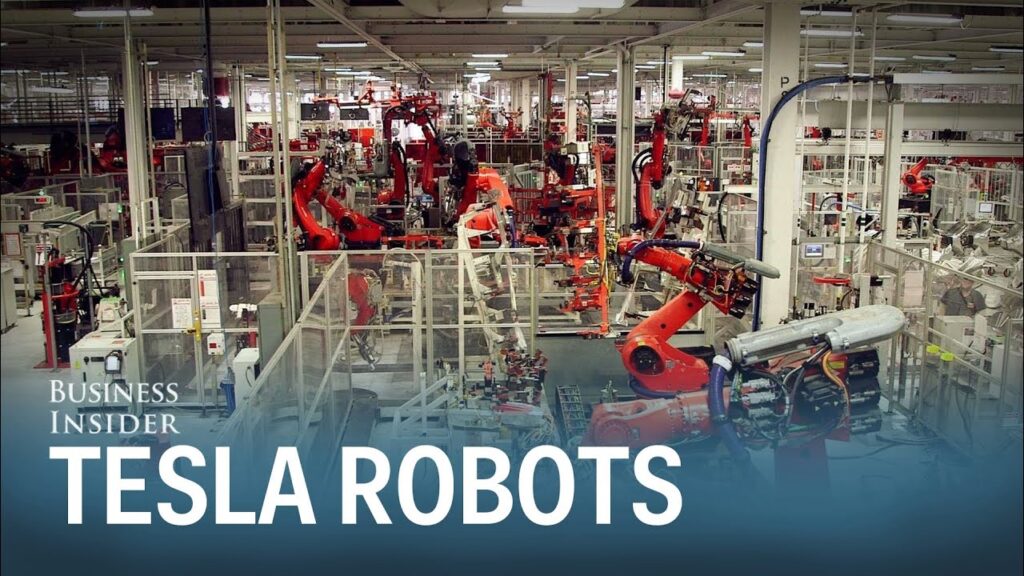Industrial Robots: Revolutionizing Manufacturing at AUDI Hungary
In today's rapidly evolving world, automation and robotics have become indispensable tools in the manufacturing industry. Companies are increasingly turning to industrial robots to enhance efficiency, increase productivity, and ensure consistent quality. Among these companies, AUDI Hungary stands out as one of the largest players, with a significant turnover and an impressive export record. This article will delve into the role of industrial robots at AUDI Hungary, the types of robots they utilize, their applications, and the impact this automation has on their manufacturing processes.
Industrial robots have revolutionized the automotive industry, and AUDI Hungary has fully embraced this technology. With a production capacity of 2 million engines and 135,000 cars annually, they have established themselves as a leader in the field. This massive output is made possible through the integration of industrial robots throughout their production lines.
At AUDI Hungary, a wide variety of industrial robots are employed, each designed for specific tasks. From the towering robotic arms that handle heavy components to the nimble robotic fingers delicately assembling intricate parts, these machines play a crucial role in the manufacturing process. FANUC Industrial Robots have become a staple at AUDI Hungary, renowned for their precision, reliability, and flexibility.
The applications of these industrial robots are extensive, contributing to various stages of the manufacturing process. They are involved in tasks such as welding, painting, assembly, and material handling. Welding robots effortlessly join metal components with pinpoint accuracy, ensuring robust and durable structures. Painting robots expertly apply the perfect finish, guaranteeing consistency and uniformity in each vehicle's appearance. Assembly robots work diligently to piece together components seamlessly, contributing to the production of high-quality automobiles. Lastly, material handling robots effortlessly transport heavy loads, improving overall operational efficiency.
Beyond the immediate benefits of increased efficiency and productivity, industrial robots also enable AUDI Hungary to maintain a competitive edge in the market. The implementation of robotic process automation streamlines workflows and enables a faster time-to-market. With the ability to quickly adapt to changing consumer demands, AUDI Hungary can respond promptly, ensuring customer satisfaction. This agility would be challenging to achieve without the integration of industrial robots.
As with any technological advancement, the question of cost inevitably arises. Industrial robots undoubtedly require a significant investment, but in the long run, they prove highly cost-effective. While the initial price tag may be substantial, the improved efficiency and reduced labor costs more than compensate for this upfront expense. Furthermore, the flawless quality achieved through automation minimizes the likelihood of defects and recalls, saving AUDI Hungary from costly errors.
For companies considering the implementation of industrial robots, AUDI Hungary serves as a testament to their success. These machines have truly transformed manufacturing processes, optimizing productivity and refining quality. The advantages of industrial robots extend far beyond the automotive industry and can be harnessed in various sectors, including electronics, pharmaceuticals, and aerospace.
In conclusion, AUDI Hungary has leveraged industrial robots to solidify its position as a prominent player in the automotive industry. These machines have revolutionized the manufacturing process, enhancing efficiency, quality, and overall productivity. With a wide range of robot types and applications, AUDI Hungary has embraced automation in all aspects of their operations. The investment in industrial robots has undoubtedly paid off, ensuring their place at the forefront of the market. As industries continue to evolve, the integration of industrial robots will become increasingly vital, ushering in new levels of performance and innovation.
Industrial Robot
"Exploring the Versatility and Importance of Industrial Robots in Modern Manufacturing"


